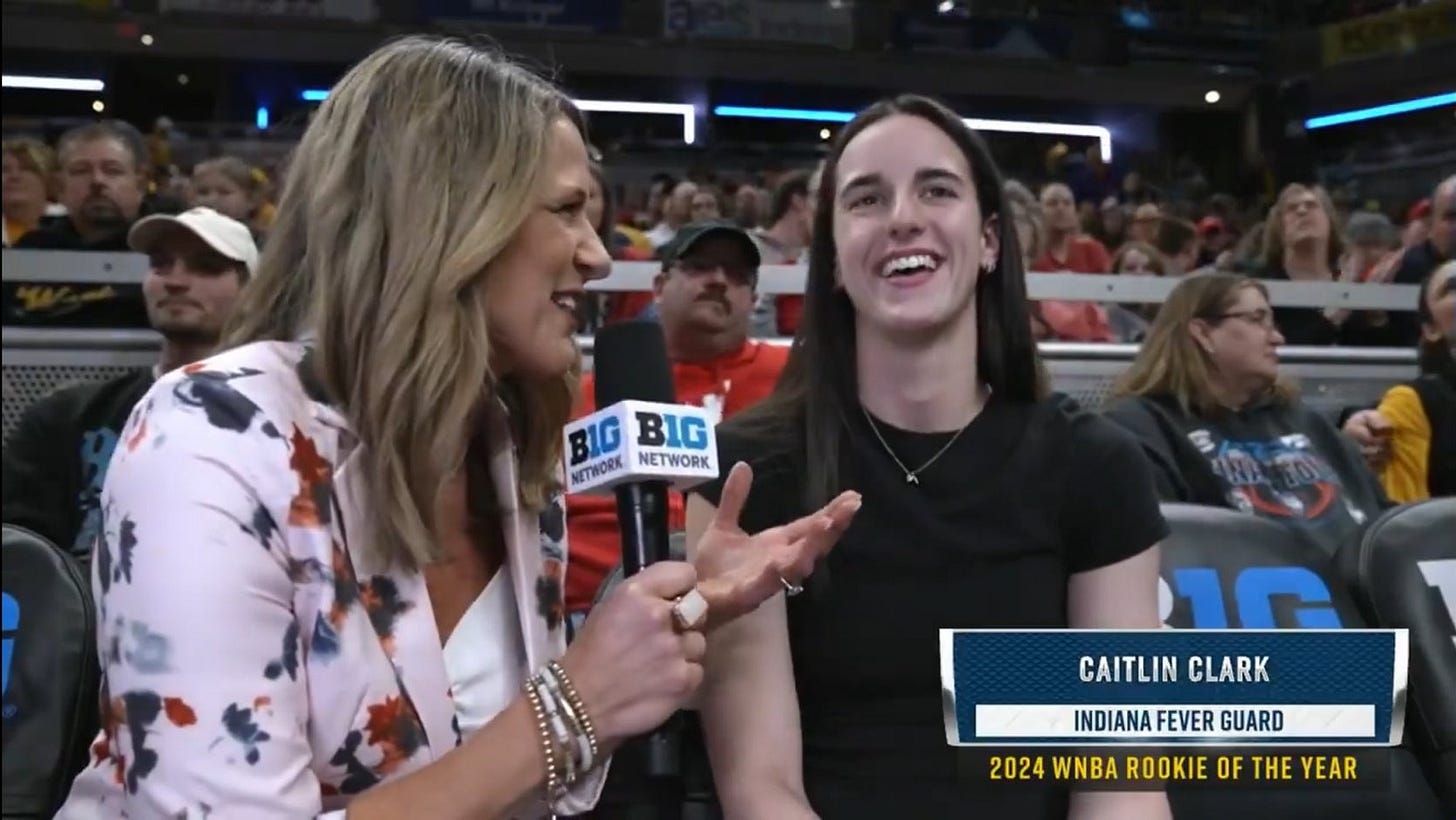
Today’s guest on the PXPU Podcast is Elise Woodward. Elise has experience in all three major broadcasting roles - play-by-play, color analyst, and sideline reporting - across numerous sports. She shares insights on preparing for different sports, the mindset required for each broadcasting role, and how to conduct effective interviews.
Timestamped Show Notes
[02:26] Discussion about broadcasting multiple sports and the challenges of learning new ones.
[04:08] Elise on the importance of getting terminology right for different sports.
[06:15] How to prepare for broadcasting unfamiliar sports:
Study the rule book
Consult with sports information directors
Talk to coaches to understand rosters and priorities
Watch film on YouTube to recognize players
[09:06] The different preparation needs for play-by-play versus color analysis.
[11:48] Tips for learning sports rules quickly, including using AI and focusing on the most relevant sections.
[15:34] Elise's career progression: starting as a color analyst at age 23, then sideline reporting, and finally play-by-play.
[18:08] The different mindsets required for each broadcasting role:
Play-by-play: Setting the tone and context
Analyst: Explaining the "why" behind what happens
Sideline reporter: Sharing what viewers can't see
[21:25] Differences between TV and radio sideline reporting.
[23:16] How to approach post-game interviews and meet interviewees at their emotional level.
[24:43] Building relationships with players and coaches before interviews.
[26:41] The challenge of interviewing frustrated coaches and not taking their emotions personally.
[29:45] The importance of respectful questioning rather than trying to create viral moments.
[31:09] How question phrasing can dramatically change an interview's tone.
[34:25] Tony shares a positive feedback from Coach DeBoer about interviewing approach.
[36:15] What to do as an analyst when you don't know "why" something happened.
[37:46] The value of silence in broadcasting, especially on TV.
[40:05] Handling unexpected broadcasting situations and last-minute role changes.
[41:24] Tips for not stepping on broadcasting partners' lines and managing timing:
Communication before the game
Timing guidelines for when to speak
Keeping points succinct (10-second chunks)
[45:14] Broadcasters Elise admires, including Doris Burke and Rebecca Lobo.
[47:28] How working in all three broadcasting roles has improved her skills in each position.
Key Takeaways
Versatility is valuable in sports broadcasting - being able to work across different roles and sports expands career opportunities.
Preparation is critical, especially for unfamiliar sports:
Study rule books and terminology
Watch film to recognize players
Talk to coaches and SIDs
Each broadcasting role requires a different mindset:
Play-by-play: Setting context and game flow
Analyst: Explaining why things happen
Sideline: Sharing what viewers can't see
Effective interviewing comes from relationship building, respectful questioning, and meeting people at their emotional level.
Working as a team with your broadcasting partners requires understanding timing, knowing when to speak, and setting each other up for success.











Share this post